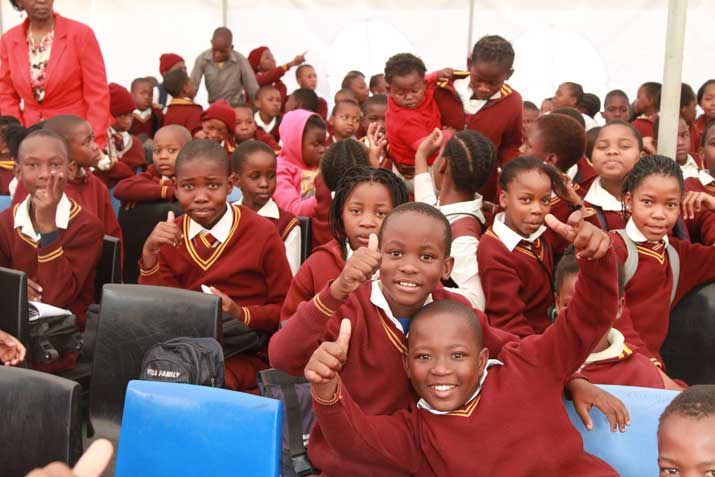The tail end of the Millennium Development Goals’ (MDGs) period is nigh; MDGs should be achieved by 2015. As the date draws by, it is time to take stock of what has been achieved and map the way forward in the post-2015 period. In this regard, on 23 September, UN Secretary-General Ban Ki-moon, presented a report, A Million Voices: The World We Want. Thus, will the new blue print result in a sustainable future with dignity for all as the UN intends?
Before discussing the A Million Voices: The World We Want project, it is important to reflect on its predecessor; MDGs. The MDGs are eight global development goals that were established following the Millennium Summit of the United Nations in 2000 which adopted the UN Millennium Declaration. These include: eradicating extreme poverty and hunger; achieving universal primary education; promoting gender equality and empowering women; reducing child mortality rates; improving maternal health; combating HIV/AIDS, malaria, and other diseases; ensuring environmental sustainability; and developing a global partnership for development. In order to push this global project, the UN held the 2010 Summit on the Millennium Development Goals. The 2010 summit adopted the Global Action Plan – Keeping the Promise: United to Achieve the Millennium Development Goals and announced a number of initiatives against poverty, hunger and disease (UN 2010; 2010 Summit on the Millennium Development Goals). Efforts have been made to measure progress on the achievement of MDGs, the latest being the 2013 Millennium Development Goals Report. The report states that ‘significant and substantial progress has been made in meeting many of the MGDs’ targets (UN, 2013; 2013 Millennium Development Goals Report, p. 1).’ Challenges; e.g., hunger and disease, remain, though.
There are about 1000 days left before the tail end of the delivery of MDGs, hence, the need to think beyond 2015. In this regard, the UN Development Group (UNDG) collected perspectives on the ‘world we want’. The survey resulted in the A Million Voices: The World We Want report. The report summarizes the findings from public consultations and surveys that engaged more than 1.3 million people in all 193 UN Member States since August 2012 in an effort to identify priorities for the post-2015 development agenda that will succeed the Millennium Development Goals (UNDP, 2013, Education, health care, honest government and jobs top priorities for people worldwide). Overall, issues that dominated the global conversations were calls for better education, improved health care services, honest and responsive governments and jobs (ibid). Indeed, these are very legitimate demands from the global community.
Ending, 2015 is very nigh, hence, it is appropriate to think post-2015. The global conversation ‘on the world that people want’ was an appropriate response and, in a way, the people have spoken. Moving forward, development, particularly in poor developing countries, is a highly sought-after goal. It is more like a Holy Grail. Importantly, it should not be any kind of development. Rather, it should be development that results in a sustainable future with dignity for all as the UN intends. Thus, will the A Million Voices: The World We Want project deliver the sought-after outcomes?

